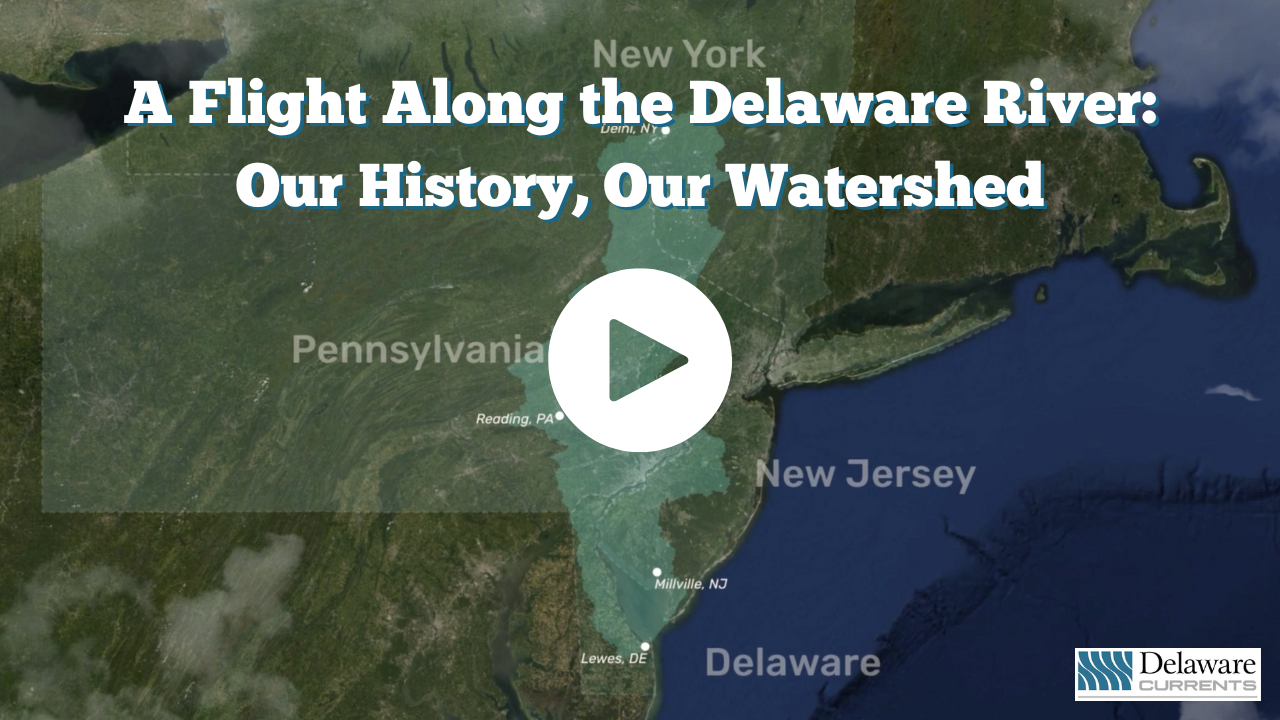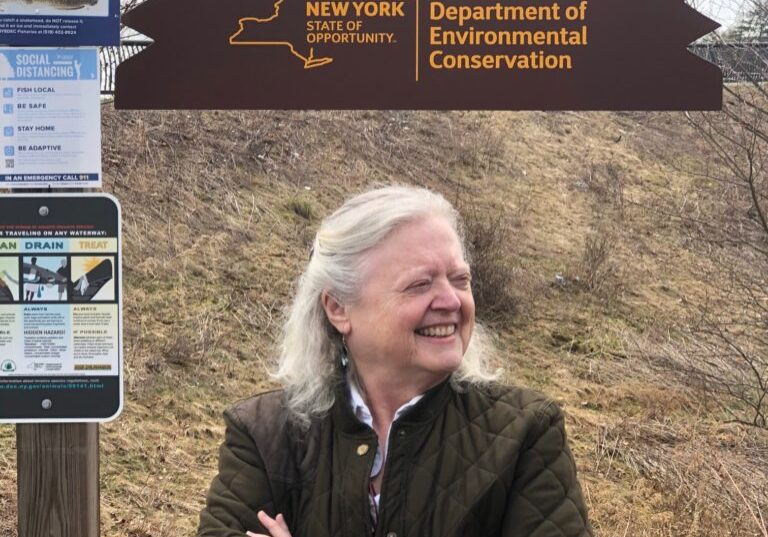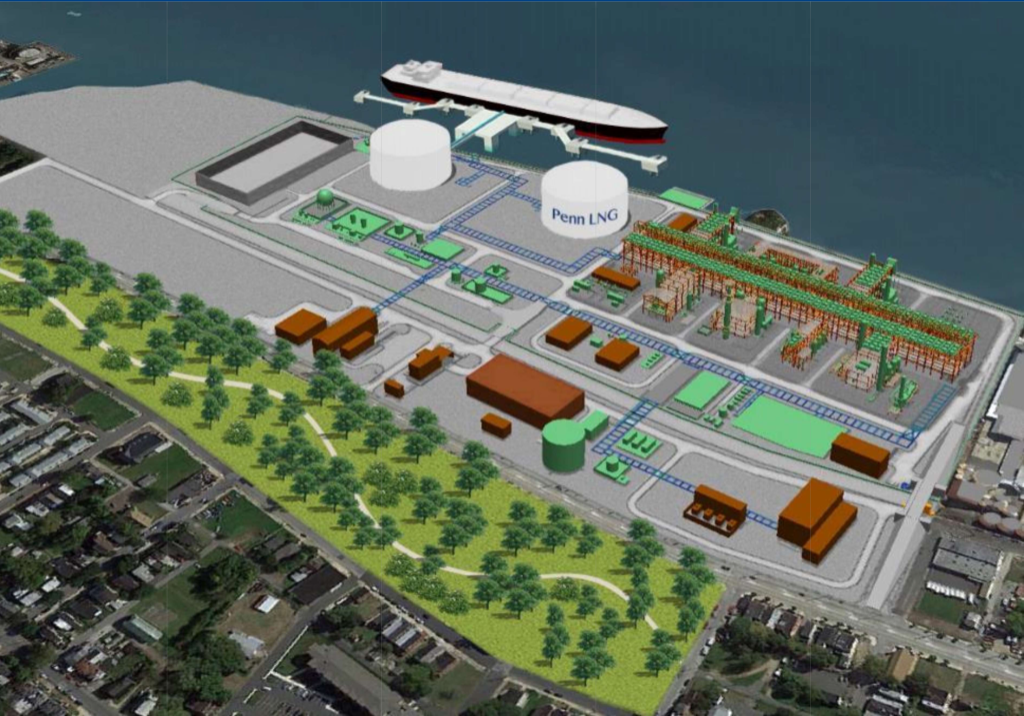
Camp FIMFO plan divides Park Service and Upper Delaware Council
| January 8, 2024
Until last year, the National Park Service and the Upper Delaware Council had never disagreed on determinations about whether a project would affect the Delaware River watershed and if it should move forward.
That all changed when the Park Service reviewed plans for a camp resort called Camp FIMFO in Sullivan County and opposed a finding by the UDC about the project.
So why was there such division for the first time in the 35-year history of the partnership between these two organizations?
The origins of opposition to Camp FIMFO
It starts with Camp FIMFO’s complexity.
Delaware Currents reported on the original plans — and worries — around the proposed project in November 2022. Since then, it’s only drawn more attention from residents and stakeholders alike.
The project proposes to transform a decades-old campsite in the Town of Highland that its new owners say will cater to families and bring jobs and better facilities.
The new owner, Northgate Resorts, which operates camp resorts across the country, took over the Kittatinny campsite in 2020. Kittatinny, which hosted canoe trips, ziplines, and campsites, is a legacy attraction dating back to 1941.
On its website, Northgate says it plans to redevelop the Kittatinny site as Camp FIMFO Catskills, a reference to the company’s branding of “Fun Is More Fun Outside.” Northgate plans include camping accommodations, a water playground, sports courts, a heated swimming pool and more, spread over more than 220 acres.
But critics fear the plans will lead to damaging stormwater runoff, which could prove harmful to the nearby Delaware River.
Residents also worry the demand for water to accommodate the improvements and water park could cause neighboring wells to go dry. They believe the project is out of sync with the town’s rural character and would draw a high density of visitors than can be accommodated.
Northgate Resorts did not respond to requests for comment.
What happens when developers face federal opposition?
The Park Service, which has a role in overseeing the administration of this neck of the river, which is designated scenic and recreational, has made its opposition to Camp FIMFO clear.
The Park Service determined that the $40 million project has elements that fundamentally conflict with the guidelines that manage the river corridor.
“Camp FIMFO is the largest proposed development of its kind along the Upper Delaware River, and the NPS has serious concerns with this proposed project and its potential impact on area resources,” Lindsey Kurnath, the NPS superintendent, said in an email.
The project has to meet the requirements of the River Management Plan, a document drafted in collaboration between local and federal governments to protect the river.
The UDC reviews the project first and makes a recommendation to the NPS, and then the NPS makes its own determinations.
And for the first time since the UDC’s founding in 1988, those decisions didn’t align.
“There have been instances in the past where we maybe didn’t initially agree, but before it came to the vote, there were revisions to come to an agreement,” said Kerry Engelhardt, the UDC’s resources and land use specialist.
“For this one, we just didn’t seem to agree on the interpretation of the RMP in a couple of spots,” Engelhardt continued. “It was tough. Nobody was happy about it. We would prefer to be a united front. But at the same time, we both felt confident in our own interpretation and weren’t willing to compromise that. People were worried about it, but I see it as a good thing. We’re both coming at this honestly. It’s not all black and white.”
The UDC approved the project in a 6-4 vote, with one abstention. It recommended to the NPS that the project did substantially conform with the river management plan.
“I thought it did substantially conform to the RMP,” Engelhardt said. “It’s a big project, with a lot of moving parts. But because it is a renovation of an existing campground since 1941, it’s the same use that has been there for a very long time.”
The findings of the UDC and the Park Service are merely advisory, with the final say-so of the project resting with the town planning board.
One of the main concerns from the NPS was about RVs proposed in the development. They’re cabin-like structures on wheels that technically count as RVs and not mobile homes.
The NPS deemed them permanent structures, a determination that bans the project in its current form.
NPS found the proposal does not “maintain or conserve the essential character of the corridor, and it violates the intent of temporary or transient use by permanently installing park model RVs and utility infrastructure on the landscape.”
Now, it’s up to the town what to do.
The latest tug-of-war
The Town of Highland Planning Board voted in September, 3-2, to order an environmental impact statement for Camp FIMFO.
The deciding vote was cast by the board chairman, Norm Sutherland, who said: “This project began in February 2022 and I believe it has been the longest application in the county. I would like to have a full environmental study done.”
The Town of Highland Planning Board did not respond to requests for comment.
The Delaware Riverkeeper Network has steadfastly expressed its opposition.
Throughout the process, and most recently in November, the organization has encouraged residents to submit comments to town planners. The Riverkeeper’s focus is ensuring that the upcoming environmental impact statement considers the full array of potential impacts of Camp FIMFO.
For example, Maya K. van Rossum, the Delaware Riverkeeper, said residents have been confused about whether the project will include a mountain coaster.
“If you’re saying the mountain coaster is not part of the project, but you’re leaving it as part of official application materials, then to me, you’re trying to keep that on the table for yourself as an option,” she said.
Northgate will draft the impact statement, which will be subject to public review and feedback once it’s complete.
It is ultimately up to the planning board to make a determination if the statement is robust and accurate, and following that, whether to approve the project.
“The planning board did listen to the community when they decided to have a full environmental impact statement required,” van Rossum said. “I think that’s a really good sign they’re being thoughtful about this process, more so than people thought they were being. I’m hopeful that will carry through the rest of the entire process.”



![DC_Image [Image 4_Assunpink Meets Delaware] meets Delaware The Assunpink Creek on its its way to meet the Delaware River. The creek passes through woods, industrial and commercial areas and spots both sparkling and filled with litter.](https://delawarecurrents.org/wp-content/uploads/bb-plugin/cache/DC_Image-4_Assunpink-meets-Delaware-1024x768-landscape-14f069364113da5e8c145e04c9f2367c-.jpg)




Northgate has been consistently inconsistent. The “plans” have changed with every presentation. The potential damage to the Delaware River (water source for Philadelphia as well as recreational for 4 states) could be irreversible. This may fly in states like Texas but should not be allowed here.